40+ Direct-to-Consumer Fashion Brands | Ultimate List for Affordable Luxury Clothing
The direct-to-consumer business model is the future of online shopping, particularly in the luxury fashion sphere. Without the middleman markup of traditional retail, customers can still get premium quality but at a fraction of the cost. Brands have more control over production, working conditions, consistency in branding, and communication with garment makers and customers. D2C allows customers to preorder, cutting down on waste, although that does require them to be patient.
In this master list of direct-to-consumer fashion brands, jump to the category by clicking here:
While you've probably heard of Everlane, a popular D2C clothing brand that made price transparency mainstream, I'll be focusing on luxury fashion in this list. I respect the talent and artistry of many high-end fashion houses, but let's face it: we're paying for their branding/logos, excessive marketing, events, luxe packaging, celebrity endorsements, influencer spon-con, not to mention retail markups, overhead costs, etc. If you don't care about any of that stuff, shop D2C brands instead.
When you purchase through links on this site we may earn a commission at no extra cost to you. This helps us provide free content for you to enjoy.
D2C CLOTHING BRANDS
Nadaam
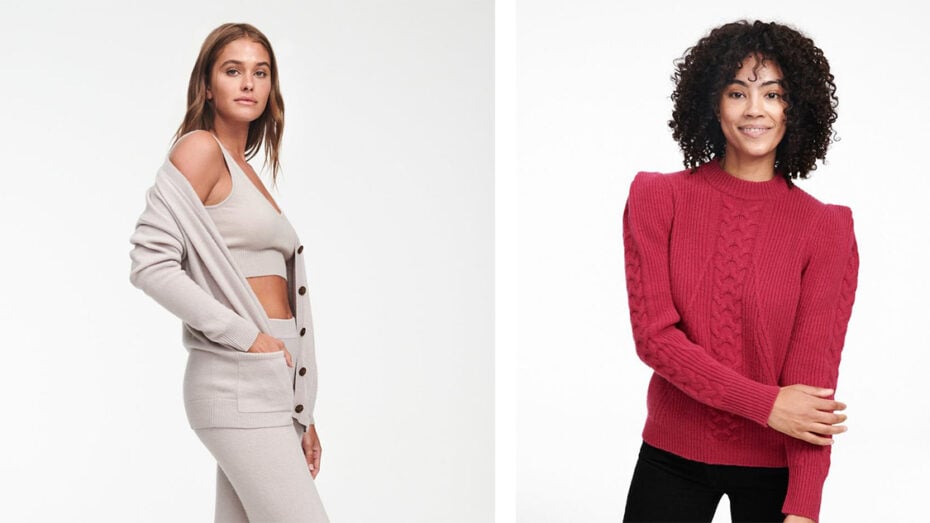
Naadam works directly with Mongolian herders for premium, sustainable cashmere. By cutting out the middlemen, they're able to pay the herders more while selling quality clothing for less. Learn more about their sustainable and ethical business practices.
Italic
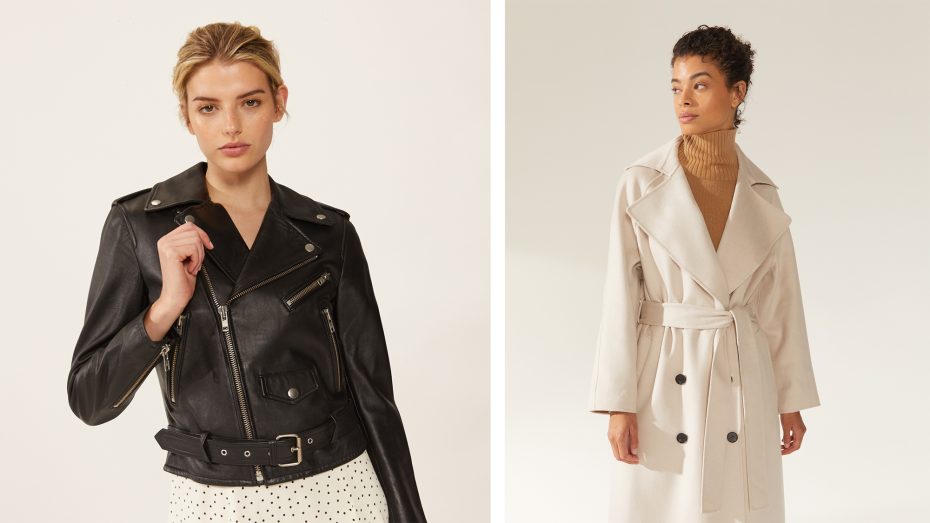
Italic is an online retailer that sells responsibly produced by the same manufacturers as top luxury brands but without the markup. They source the world’s finest materials and produce clothing for women and men in timeless designs. Aside from fashion, jewelry, and bags, they also sell unbranded luggage, home goods, beauty products, and pet accessories. Italic products are shipped from both US and international locations. You may receive multiple packages for one order.
The Curated
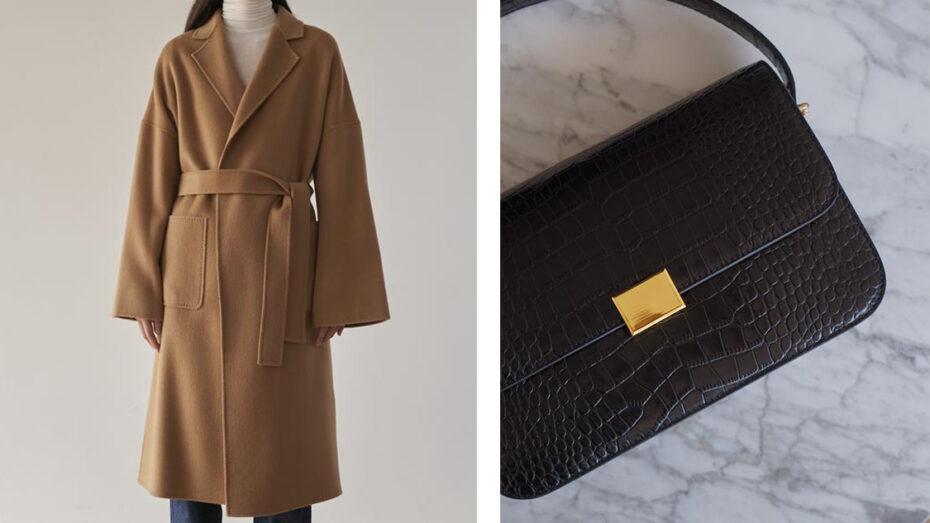
I've purchased a few pieces from The Curated because they're great value. Their Classic Coat, a 30% organic cashmere blended with 70% merino wool, costs way less than similar coats from designer brands. Learn more about their honest pricing here.
The Curated works with a family-owned factory in Inner Mongolia, China, a vertical mill that produces both the raw material and finished product. Items ship directly from China and duty fees are calculated in advance along with shipping.
Christy Dawn
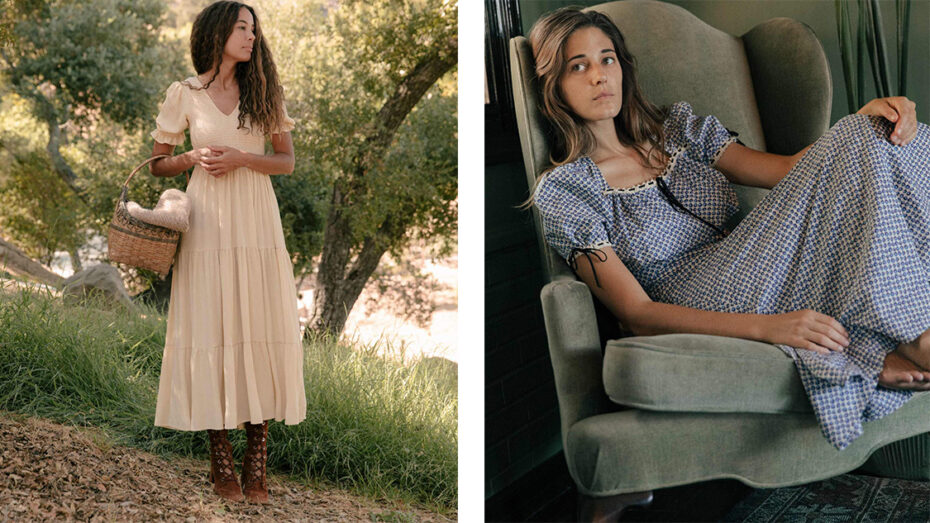
Sustainable clothing brand Christy Dawn is known for its timeless, prairie-chic dresses. They source deadstock fabric, the excess fabric left behind by other fashion companies. Recently, they launched a "farm-to-closet" initiative in southern India, working with traditional farmers and craftspeople to nourish a depleted plot of land back to health, and sowing their own cotton with regenerative techniques that honor Mother Earth.
Talented dressmakers in LA use construction methods that make the garments last. On each product page, they offer transparent pricing by breaking down the cost and also showcase the dressmaker who made the piece.
Misha Nonoo
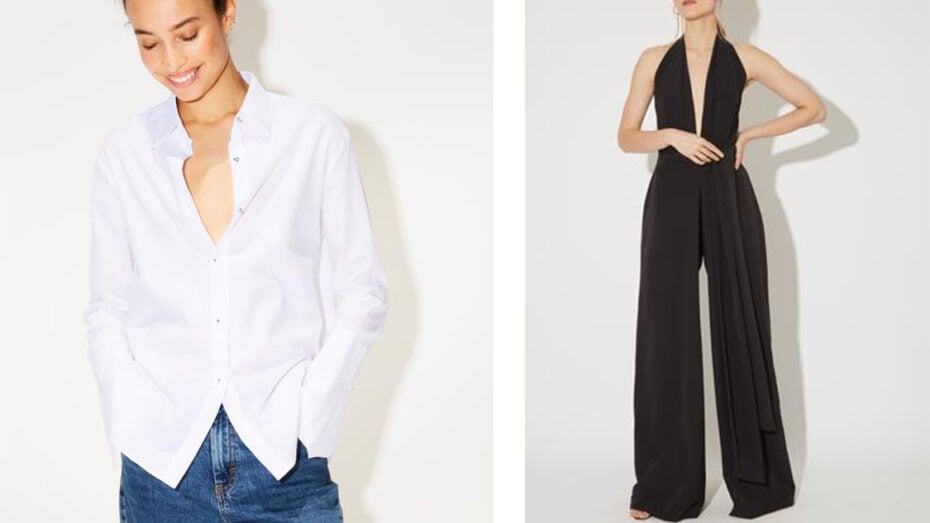
You might have heard of New York-based designer Misha Nonoo for The Husband Shirt that Meghan Markle wore when she first started dating Prince Harry. After a few years of selling to traditional retailers, she stopped and became an early adopter of the direct-to-consumer model in 2016. They now produce their pieces on demand, which massively cuts down waste, in an ethical, woman-owned factory in Shenzhen, China. Recently, the brand has eliminated plastic from its domestic shipments and introduced new sustainable fabrics to its collections.
Datura
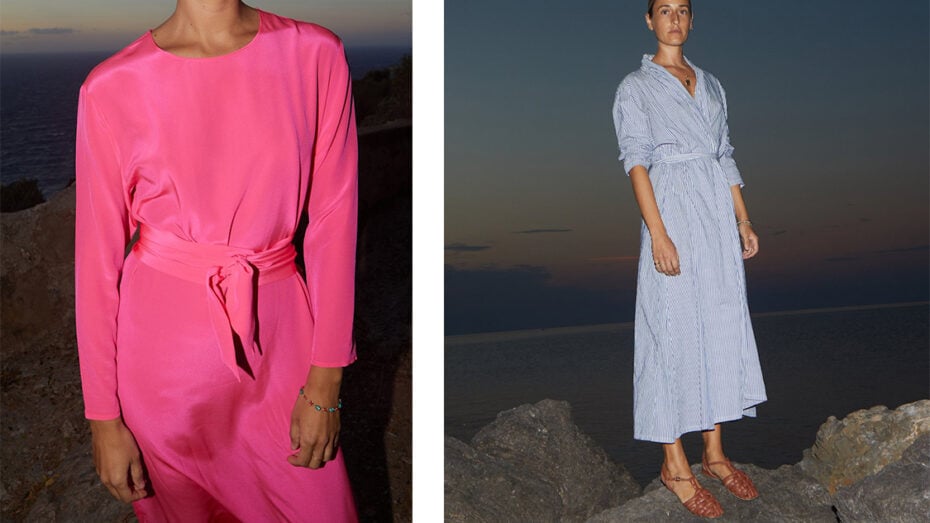
I'm such a fan Datura's modern and colorful take on timeless clothing for women. Handmade in New York, the label uses luxurious natural fabrics (silk, linen, wool, etc.) for pieces that can be worn effortlessly all year round.
Kitri
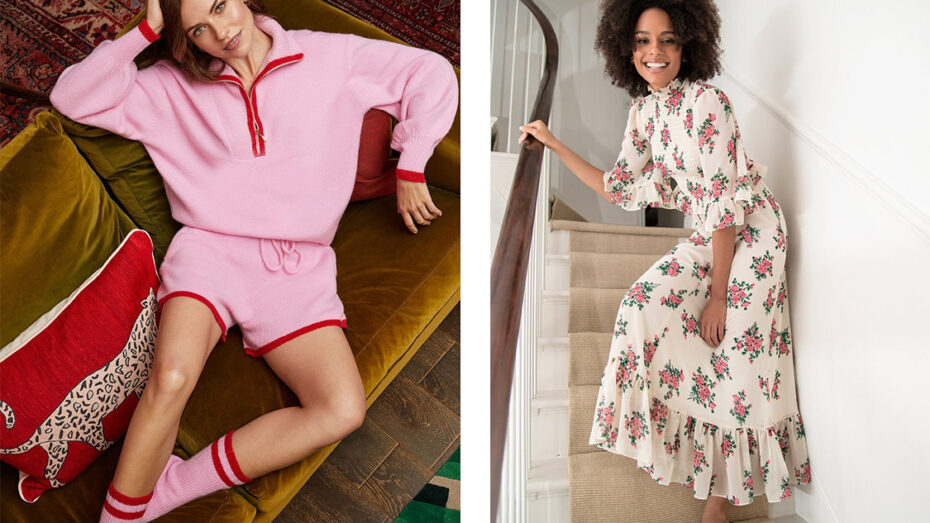
London-based brand Kitri relies on pre-orders to gauge customer interest and avoid waste and overstock for their collections. While D2C brands usually focus on capsule wardrobe-type staples, Kitri's designs are fun and colorful, pieces you can wear for work and play. Each design is produced in limited runs.
Sézane
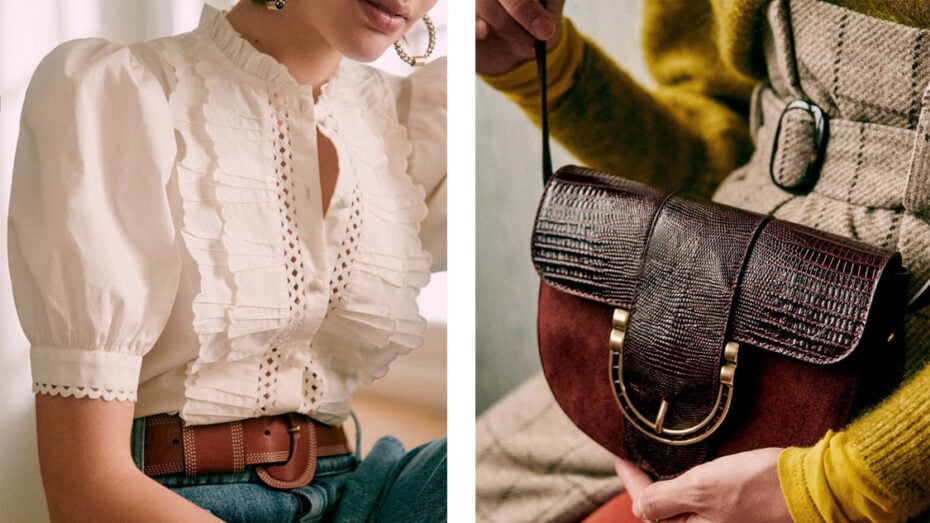
French label Sézane was born online to offer customers quality clothes and accessories at accessible prices. A lean production model based on customer demand helps avoid overproduction and overpricing. Two-thirds of their products are made in Europe, and they are now a B Corporation.
AYR
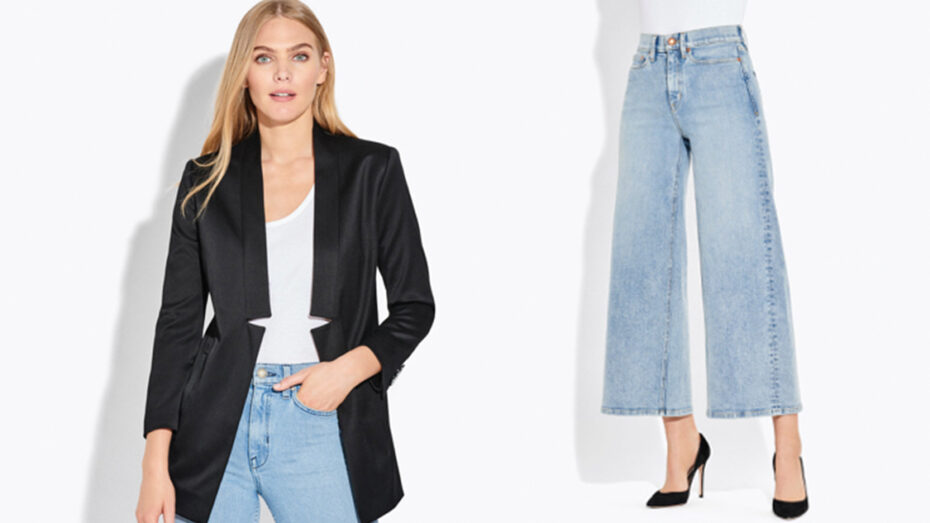
Founded in 2015, AYR (All Year Round) sells seasonless essentials for everyday life. Designed in NYC, their bestsellers include figure-flattering jeans and casual-cool tops you can wear to work. Their denim is made in LA.
Richer Poorer
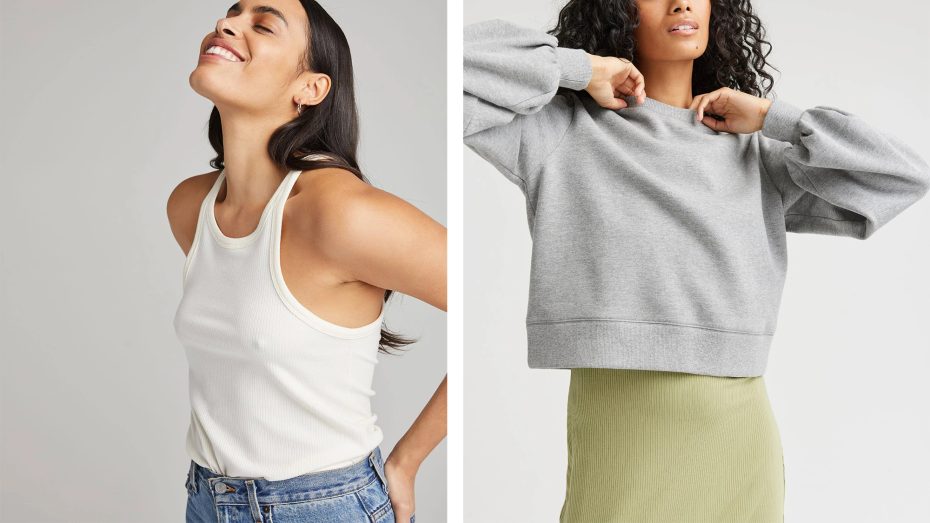
California brand Richer Poorer's clothing is designed with a focus on simplicity, versatility, and sustainability. The brand uses eco-friendly materials, such as organic cotton and recycled fibers, in the production of its products and is committed to ethical and responsible manufacturing practices. They offer a range of clothing and accessories for men and women, including socks, underwear, loungewear, tees, intimates, and more.
The Ethical Silk Company
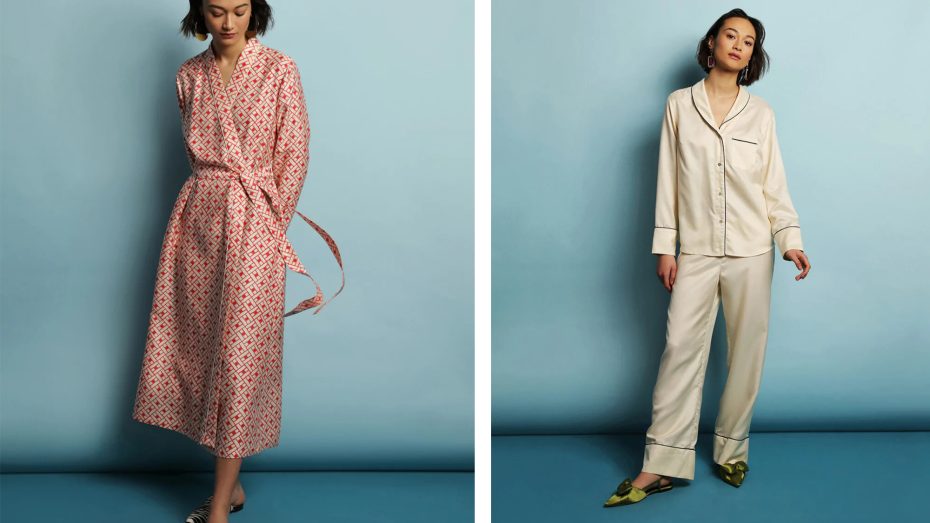
The Ethical Silk Company's nightwear, clothing, and accessories are designed in Ireland and made Fair Trade in Jaipur, India. Their high-quality Mulberry silk pajamas are machine washable. They also sell silk products for men and babies. Since they're a direct-to-consumer online brand, they pass on the savings to you.
HATCH Collection
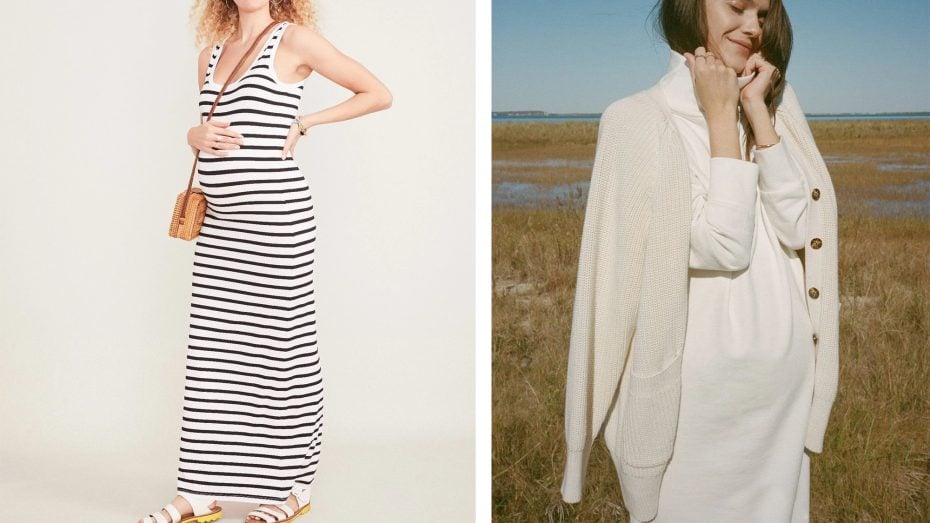
HATCH Collection was founded to fill a gap in the market for stylish maternity clothing that you can wear after giving birth. Their clothing is made in New York or abroad. They ship internationally. You can also visit one of their brick-and-mortar stores.
Thakoon
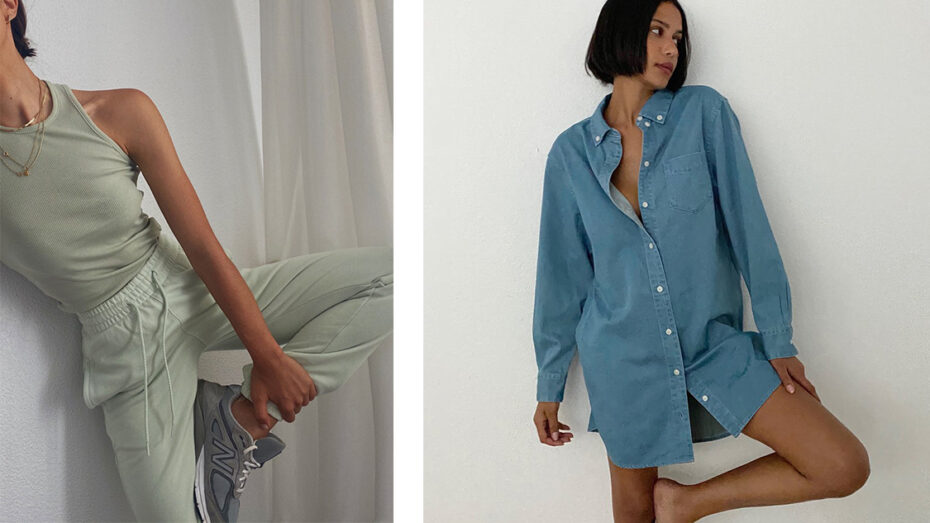
2023 update: Thakoon seems to be on hiatus for the moment. Check out their collection for Rent the Runway in the meantime.
Thakoon Panichgul surprised the fashion world by shuttering his designer line, a favorite of Michelle Obama's, to relaunch as a D2C brand in 2019 with lower price points. “For me, it was important to do something a bit more curated,” Panichgul told Vogue. “In the past, we would design 200 styles for a collection for a runway season... but it just doesn’t make sense. At the end of the day, stores ended up just buying, you know, 20 styles.”
With help from Naadam chief executive Matt Scanlan, now Thakoon's CEO as well, the brand works directly with manufacturers in Asia, both existing Nadaam manufacturers and new ones. The clothes are practical and functional but from a designer's point of view.
D2C SWIMWEAR AND LINGERIE BRAND
Summersalt
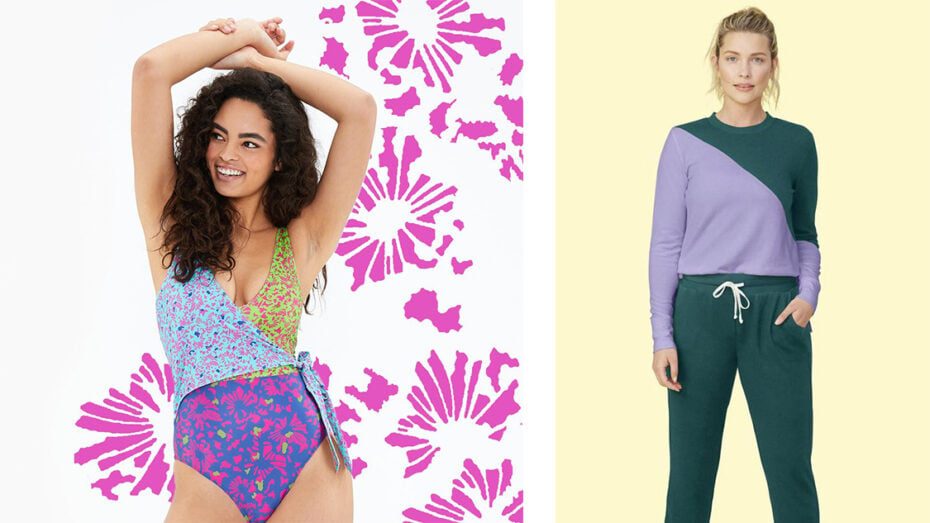
Summersalt makes "designer swimwear without the designer price tag." To create the best fit, they took body measurements from over 10,000 women.
Summersalt uses recycled fabrics and product packaging, and they've recently expanded to loungewear, sleepwear, activewear, and other apparel.
BIKYNI
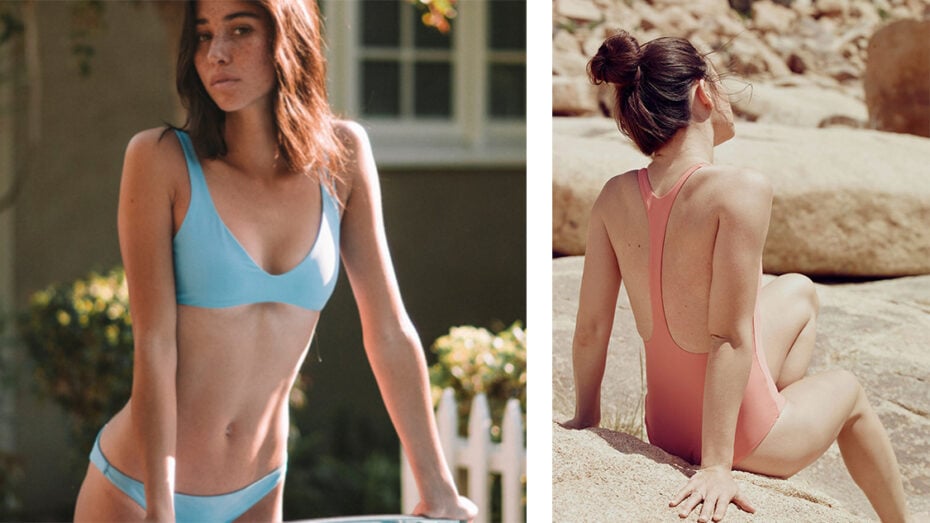
BIKYNI makes minimalist swimwear using sustainable fabrics from Italy. They're produced in Los Angeles, near the brand's office, so they can closely monitor quality and ensure safe working conditions and fair wages are provided to their factory team. The label wants to simplify the search for swimwear, so their bikini tops and bottoms are easy to mix and match.
LIVELY
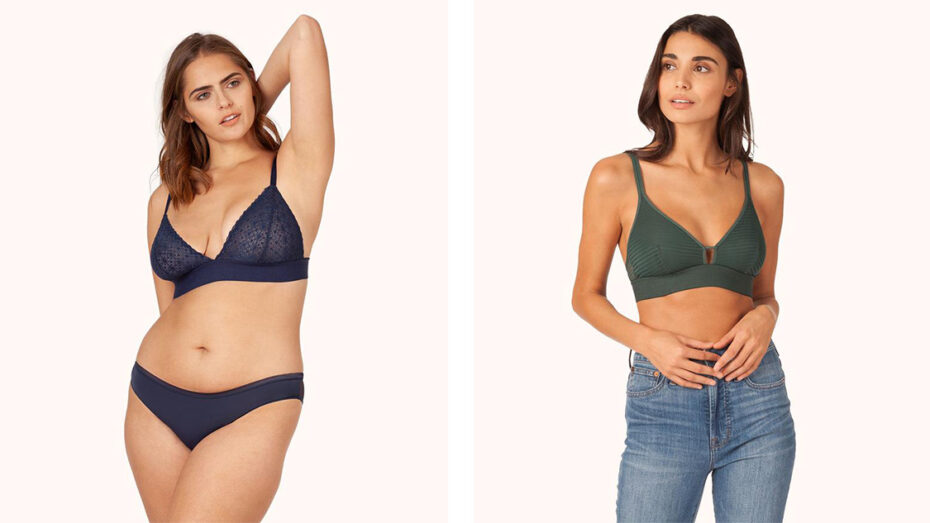
LIVELY merges sexy and comfort into something they call Leisurée, athleisure for lingerie. They own their own factory in southern China, which enables them control over quality and implement customer feedback.
Third Love
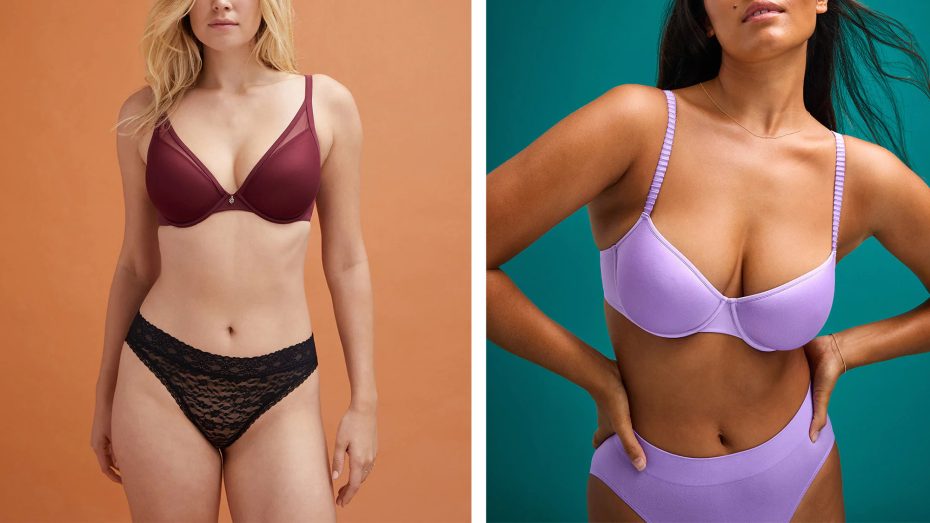
Third Love is an American D2C bra company focusing on giving women the best fit. Aside from underwear, they also offer activewear and loungewear. Most of their pieces are produced by women-run factories across Asia. Third Love also has a few brick-and-mortar stores in cities across the US.
MeUndies
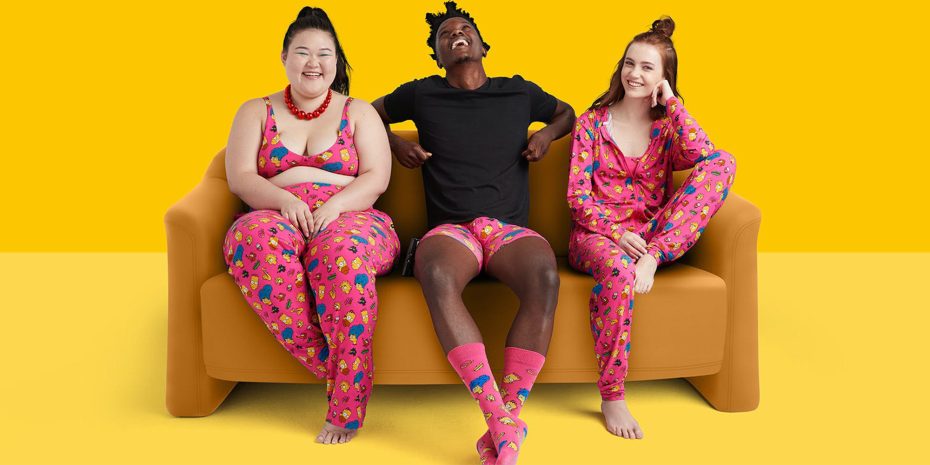
MeUndies makes colorful underwear for men and women with fun prints. You can even get matching underwear with your significant other. They're made from sustainable materials such as ethically-sourced organic cotton or MicroModal. MeUndies ships from the US internationally. Canada, Australia, and New Zealand orders are not subject to duties and taxes.
Pepper
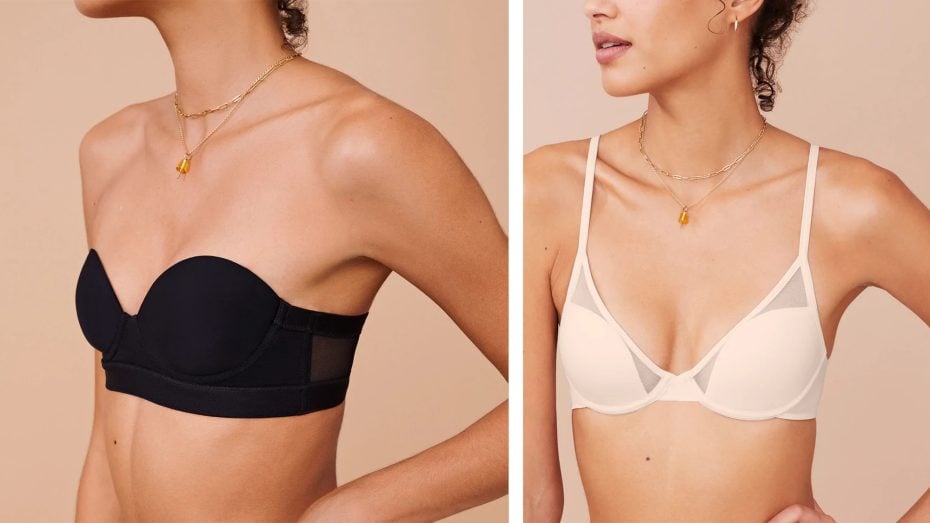
Women-founded lingerie brand Pepper makes bras for women with small chests. Based in the US, they make their products responsibly in Columbia with non-toxic, OEKOTEX certified fabrics. They ship within the US and to Canada.
D2C SHOE BRANDS
M.Gemi
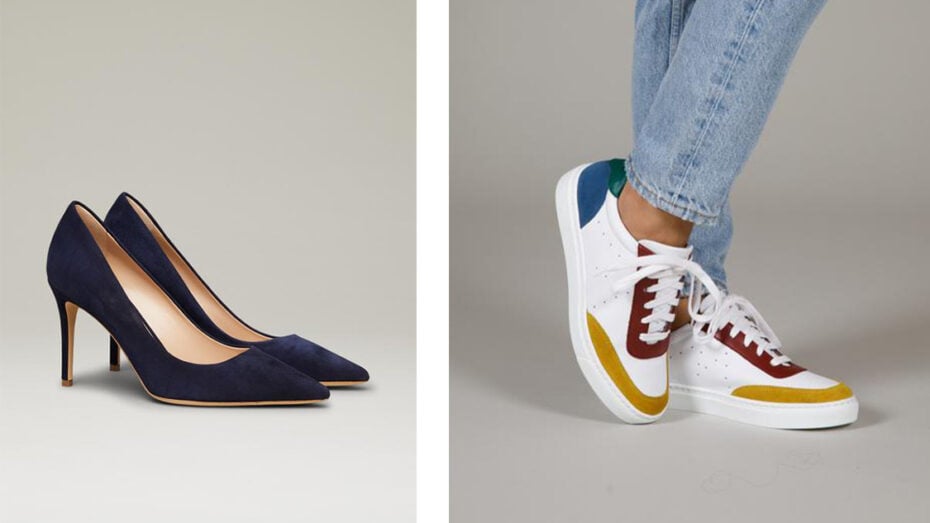
M.Gemi also offers premium Italian craftsmanship at reasonable prices for men and women. They work with over a dozen family-owned specialty workshops in Italy. Due to their direct relationships with the artisan factories, they're able to restock sold-out items in 30 days.
Dear Frances
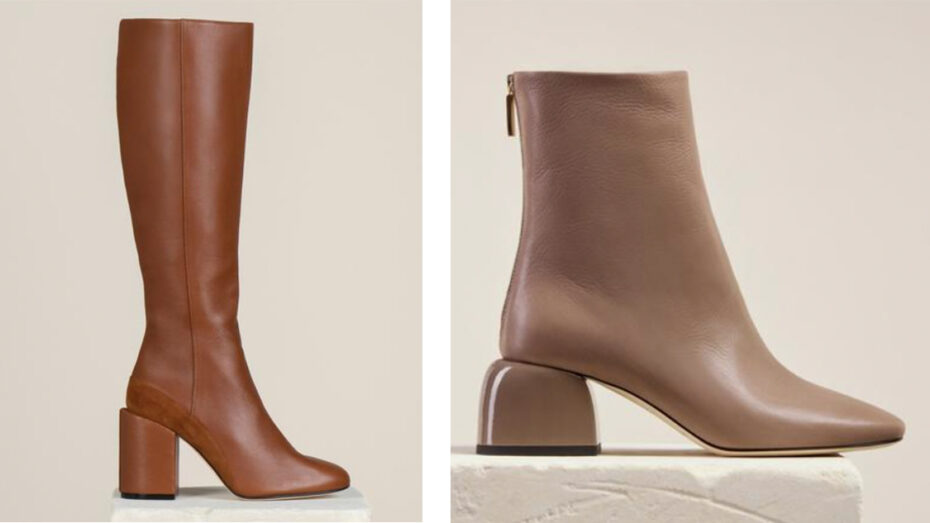
Dear Frances works closely with artisan shoemakers in northern Italy to make luxury footwear for the modern woman. Each pair is hand made to last using age-old techniques passed down through generations of highly skilled shoemakers. Their Core Collection works for a timeless wardrobe.
Tamara Mellon
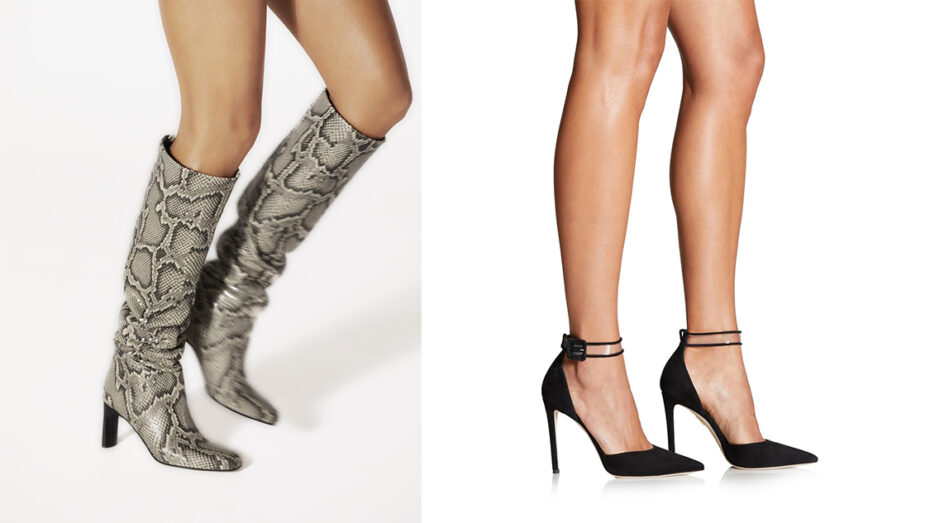
A co-founder of Jimmy Choo in 1996, Tamara Mellon recently decided to disrupt the industry with a D2C line of luxury shoes without the 6x markup. She works with family-run factories in Italy that have made the best quality luxury shoes for decades.
Maguire
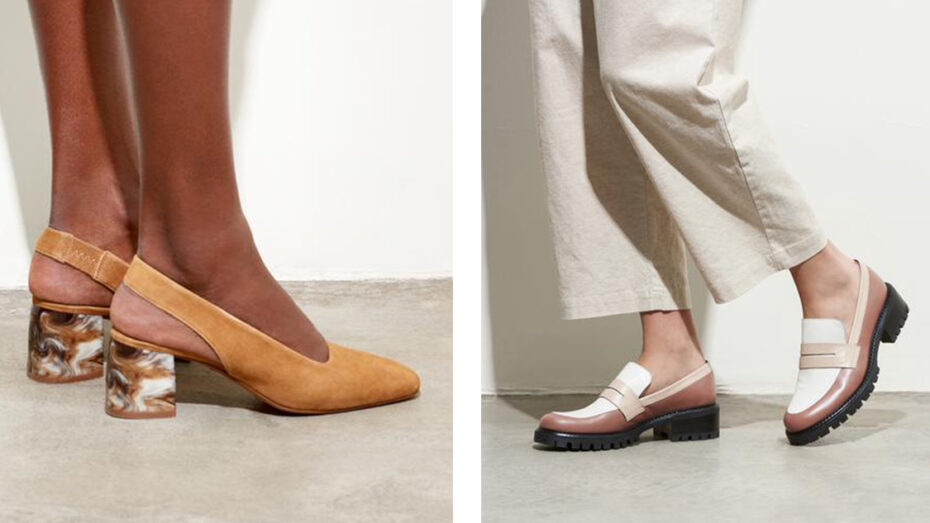
Canadian brand Maguire makes its footwear and accessories in ethical factories all over the world. Each product page for their shoes includes a transparent pricing breakdown of cost.
Labucq
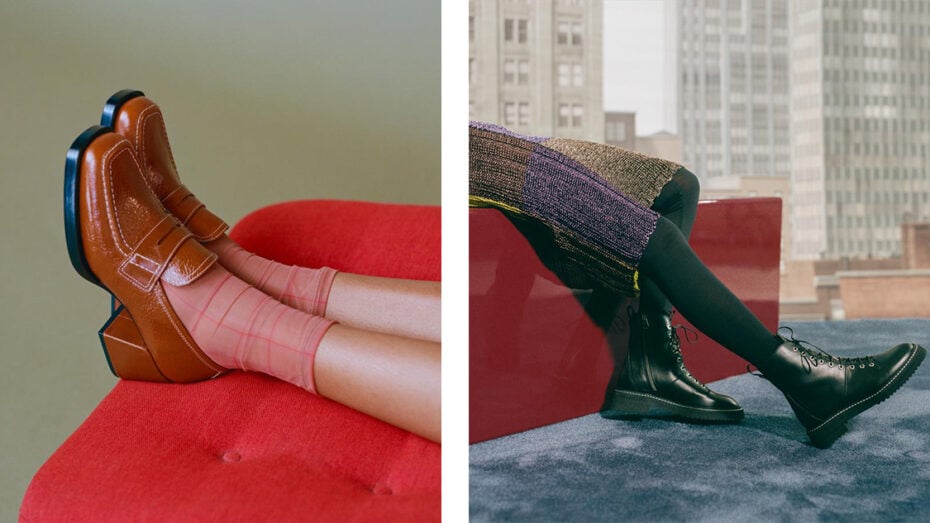
LA-based Labucq is a fashion-forward contemporary women's footwear brand founded by Lauren Bucquet, former Director of Footwear and Accessories at Rag & Bone. Learn more about their Italian factory.
Greats
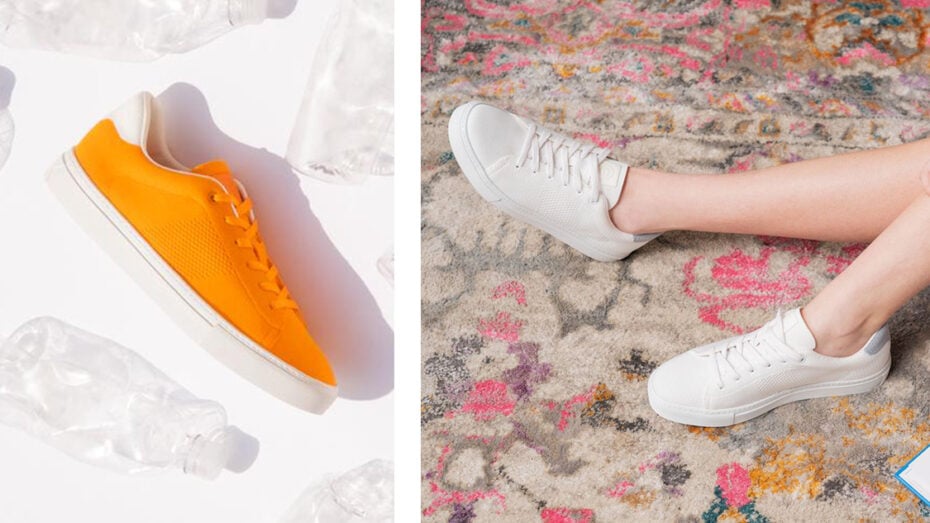
Founded in Brooklyn in 2014, GREAT's retro-classic sneakers and comfy footwear are made to last. They have plenty of sustainability efforts and offer vegan alternatives made with recycled plastics.
allbirds
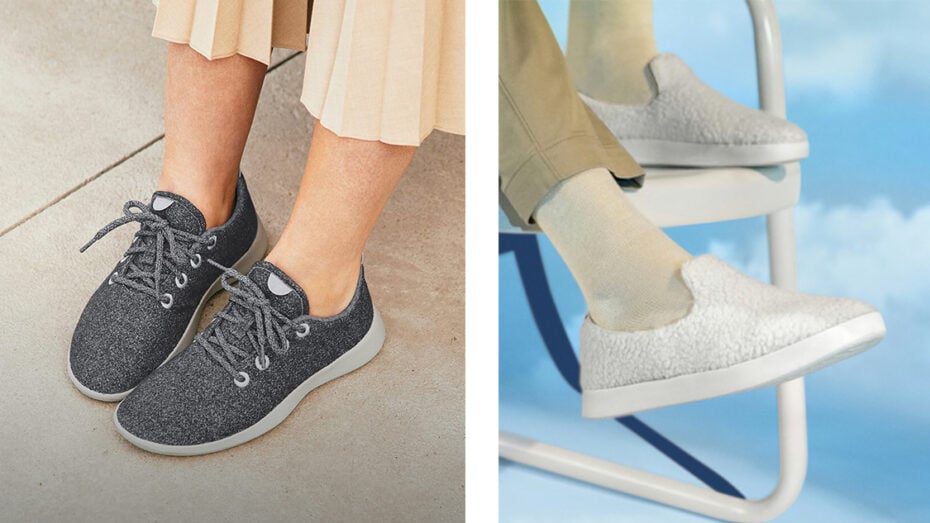
Certified B-Corp Allbirds is known for its comfortable walking shoes made with merino wool. Their shoe boxes are 90% post-consumer recycled cardboard. Recently, they've expanded to apparel for both men and women.
D2C BAG BRANDS
Leatherlogy
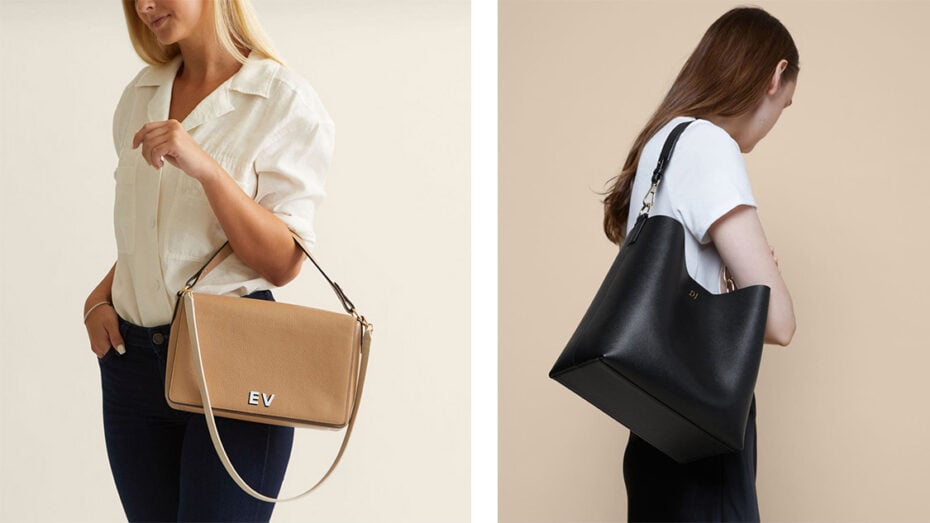
Leatherology's timeless purses and everyday leather essentials can be personalized, allowing your initials to be the focus instead of branding logos. Their leather products are designed in the USA and produced in their own world-class, state-of-the-art facility in China, which adheres to strict quality standards and ethical manufacturing practices. They carefully control all materials and processes from start to finish. Their online-only business model allows them to use the finest materials at accessible price points.
DeMillier
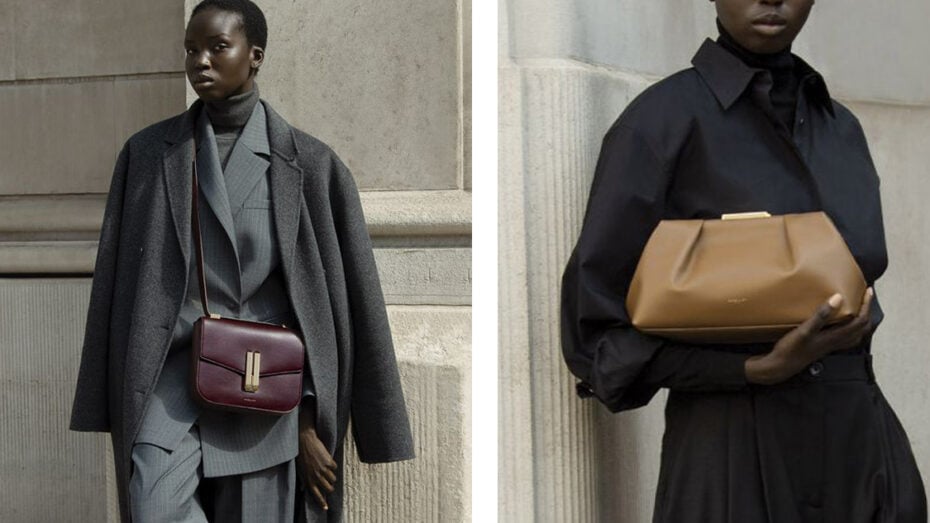
DeMillier London's high-quality handbags are crafted by artisans in a family-owned factory in the South of Spain. Their leathers are sourced from Italy and Spain, suppliers certified by the European Leather Working Group, guaranteeing the highest standards of sustainability and sourcing. Their packaging is made of partially recycled paper sourced from FSC accredited suppliers and natural cotton, thus fully recyclable. They offer complimentary monogramming on all orders, as well as a lifetime of free repair.
Cuyana
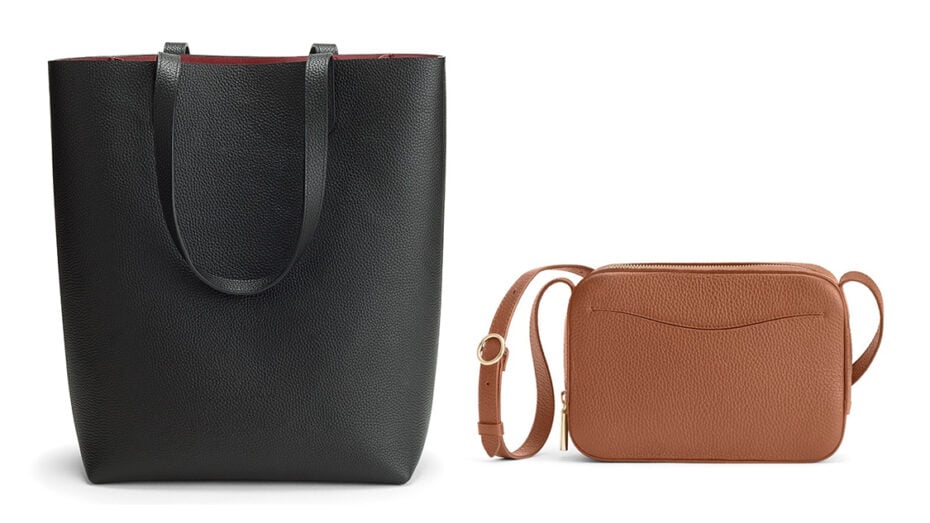
Cuyana's maxim is to need fewer, better things. Everything they create is to promote maximum wear—timeless, functional, and versatile pieces. Learn about their production and sustainability initiatives here. Aside from bags, they also sell clothing, jewelry, and more.
Sinbono
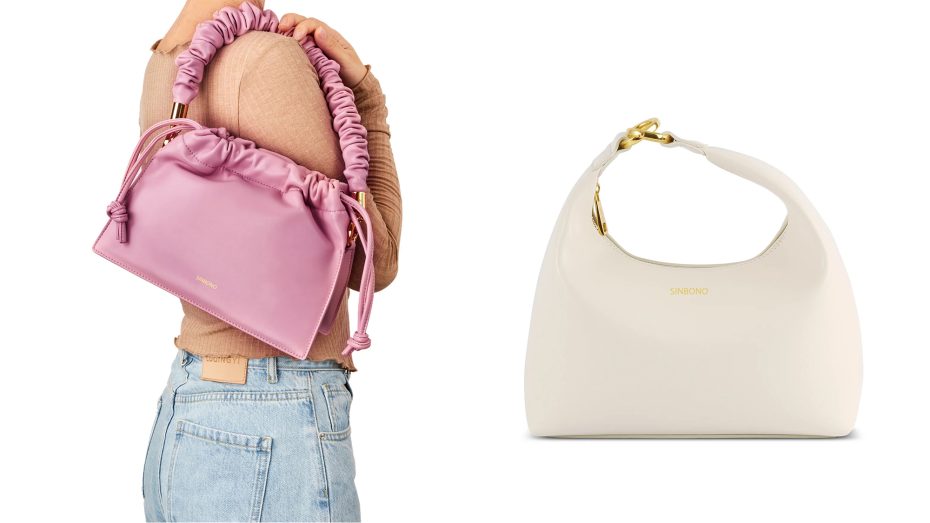
Established in New York, Sinbono's mission is to make chic, vegan, eco-friendly purses are affordable prices. They responsibly recycle plastic bottles into polyester. In addition, they use reclaimed apple skins which is a bio-based alternative.
MLouye
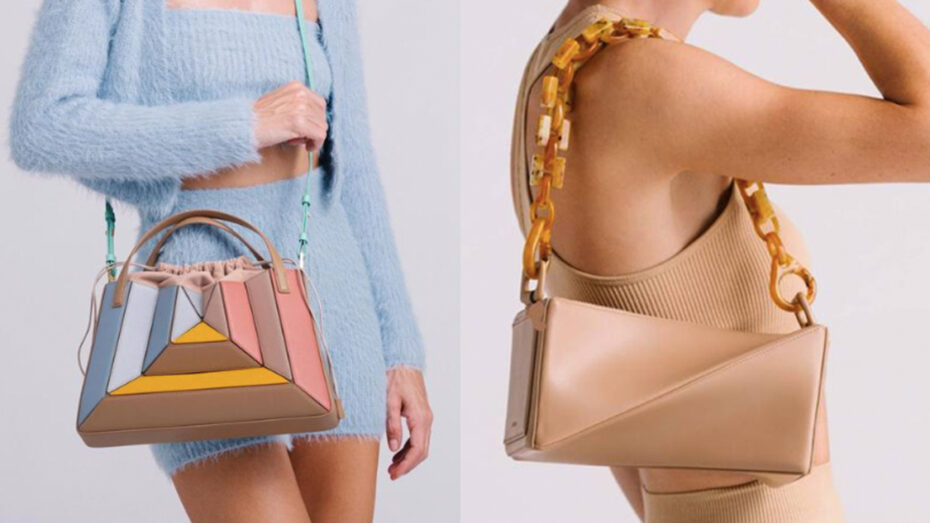
Mlouye’s founder and creative director Meb Rure hails from an industrial design background, and his designs are inspired by the Bauhaus Movement's artists and architects. Innovation being the key factor alongside aesthetics, Mlouye has brought unexpected shapes with smart details, functionality and a new luxury feel with a contemporary price point. The company's headquarters is now split between the US and Turkey, and their factory is in Turkey.
Senreve
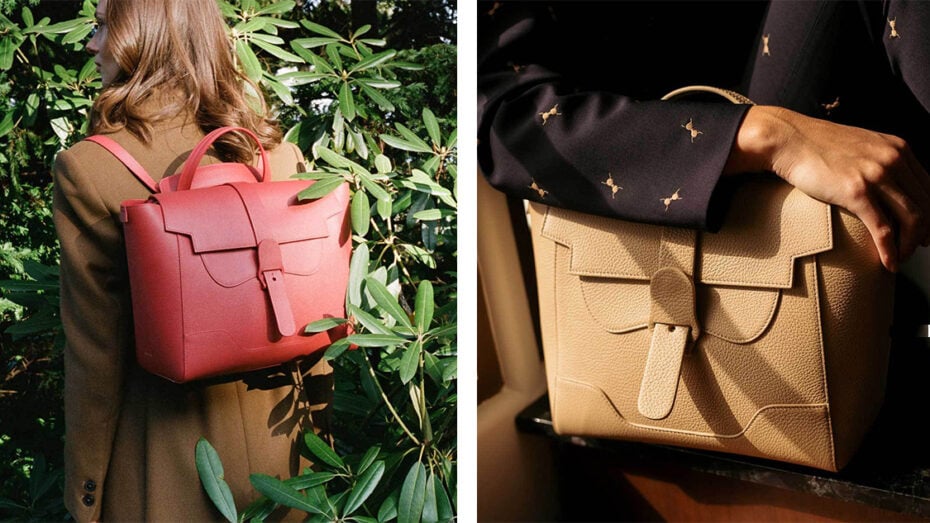
Senreve was created out of a need for beautiful luxury handbags to also be multi-functional. Their bags are lightweight, travel-friendly, and versatile to take from business meetings to happy hour. Their popular Maestra line of purses can also be transformed into backpacks. Their bags are made in Italy, and they also have a vegan line. Learn more about their sustainability practices.
Dagne Dover
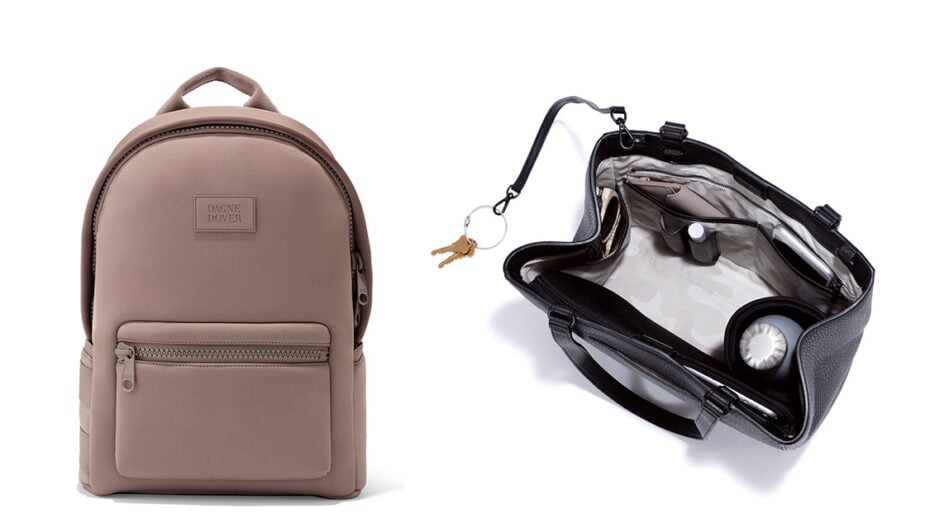
Dagne Dover creates bags that lets you stay organized for work, play, childcare, travel, or the gym. Learn about their sustainability efforts and design process.
D2C JEWELRY BRANDS
Aurate New York
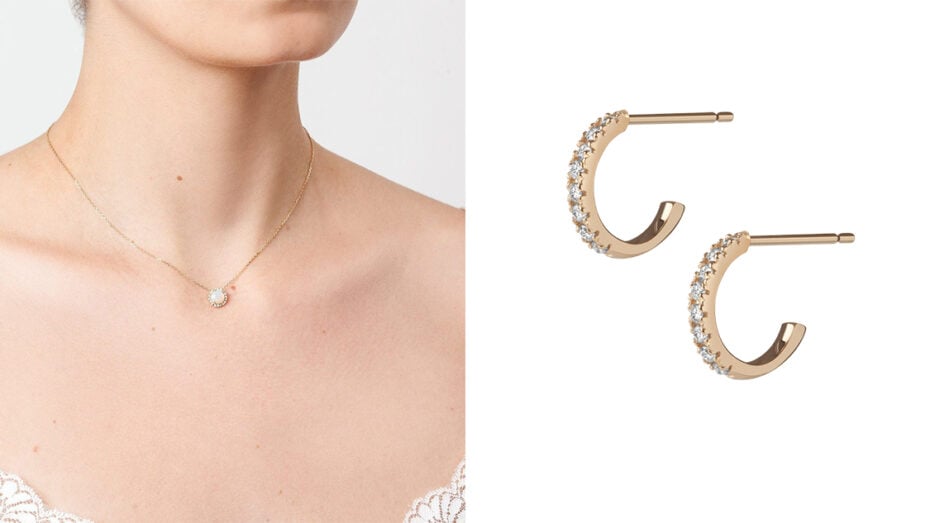
Designed and made in NYC, Aurate offers fine jewelry using ethically-sourced and sustainably-made 14K gold, 18K gold, and 14K gold-plated vermeil. They do not use unnecessary middlemen or add insane markups.
Mejuri
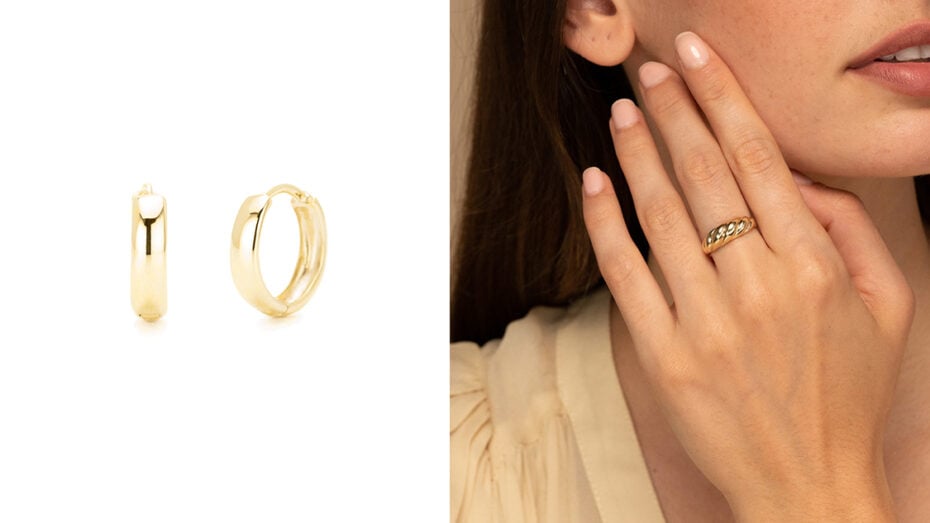
Canadian brand Mejuri makes minimalist, wearable fine jewelry without the traditional markups. 60% of their production partners are world-renowned suppliers that are certified by the Responsible Jewellery Council, the international standard bearer for ensuring supply chain sustainability, labour rights and integrity across the jewelry industry. The remaining 40% are family-run businesses that work closely with Mejuri on social and environmental practices to create high-quality pieces. Check out my honest review of Mejuri jewelry (TL;DR version: avoid their gold vermeil, invest in their 14k gold pieces instead).
LUGGAGE
Paravel
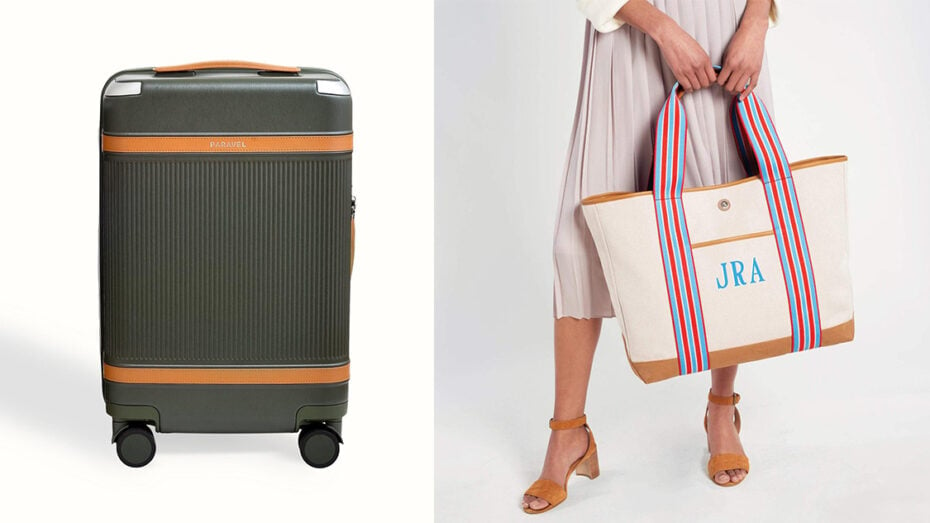
Paravel wants you to know they are the most sustainable travel and luggage brand in the world. Learn more about their sustainable practices. They offset the carbon emissions generated by sourcing, creating and shipping their luggage line. Their bags, duffles, and even packing cubes can be personalized with your initials.
Away
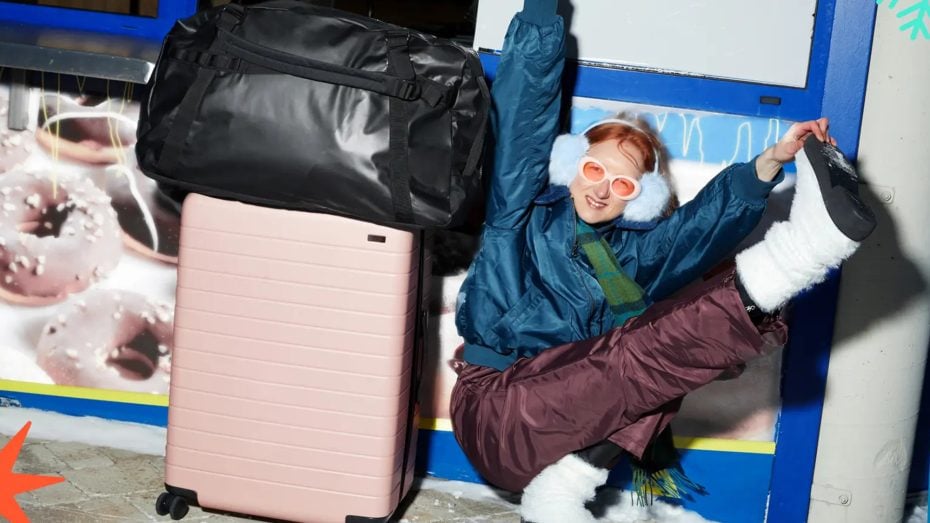
New York-based Away makes high-performing, durable luggage that is comparable to the expensive luxury luggage brands on the market. Known for their suitcases, they also sell travel bags, organizers, and accessories.
Mono
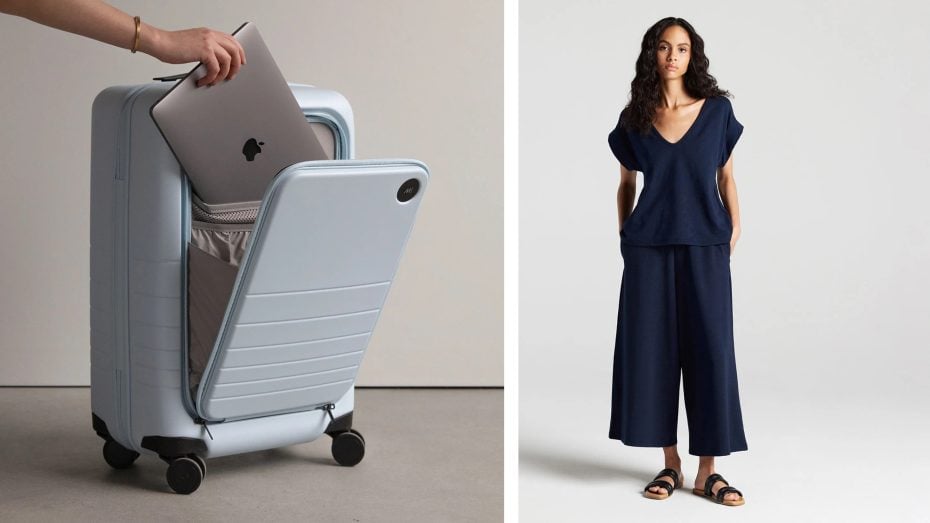
Monos value simplicity and design their premium luggage to be timeless classics. While high-end suitcases are out of reach for the average consumer, their D2C business models offers luxury quality without the markup. They offer free shipping to the United States and Canada. We are able to ship anywhere in the world, with shipping costs will be automatically calculated at checkout.
D2C ACCESSORIES BRANDS
Solios
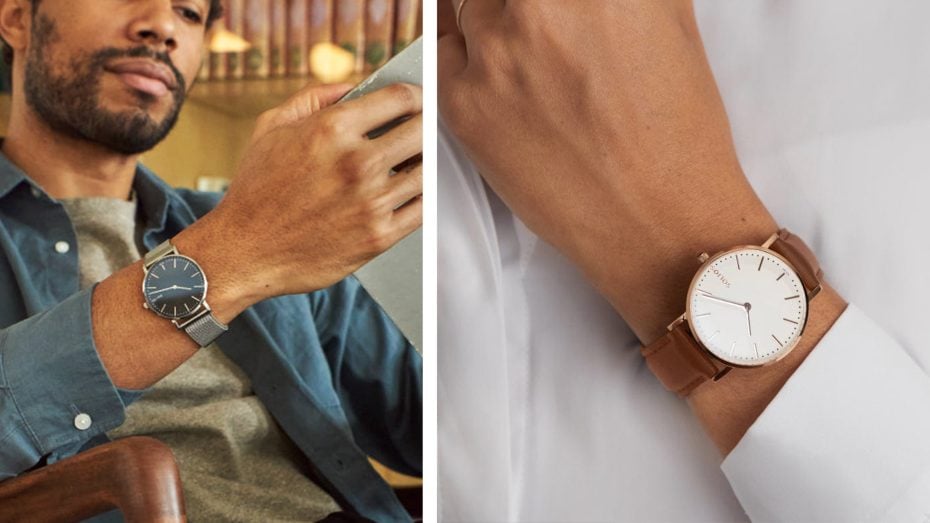
Solios is a sustainable Canadian B Corporation making sleek and timeless solar-powered watches for men and women. Never replace another watch battery again. Read my review of Solios' women's watch.
Linjer
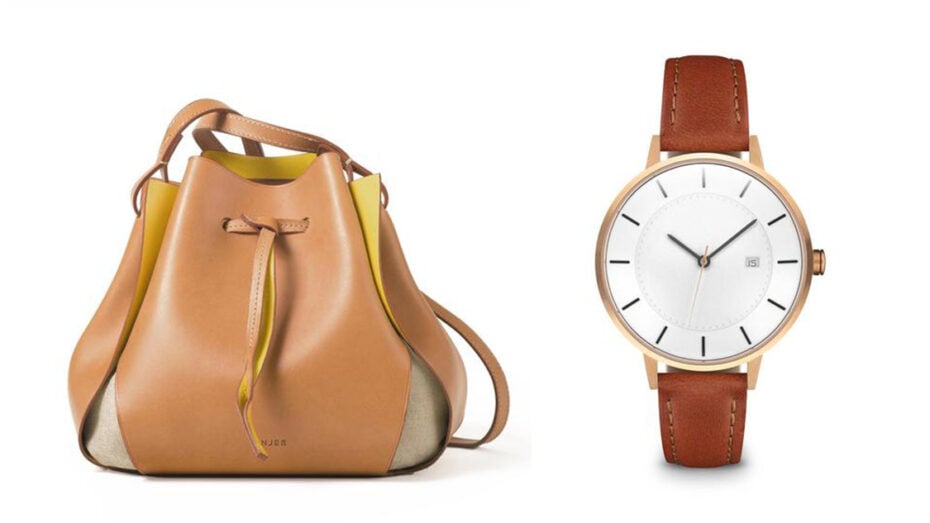
Linjer came to be when the founders couldn't find high-quality alternatives to unsustainable fast-fashion products and overpriced luxury brands. In 2014, keeping their operation lean and selling online, they were able to offer luxury quality products at a fraction of the price. They select the most eco-friendly and long-lasting materials available to them, and starting in 2020, they began to offset carbon emissions for every shipment. Their current collection includes watches, leather goods, and jewelry.
Warby Parker
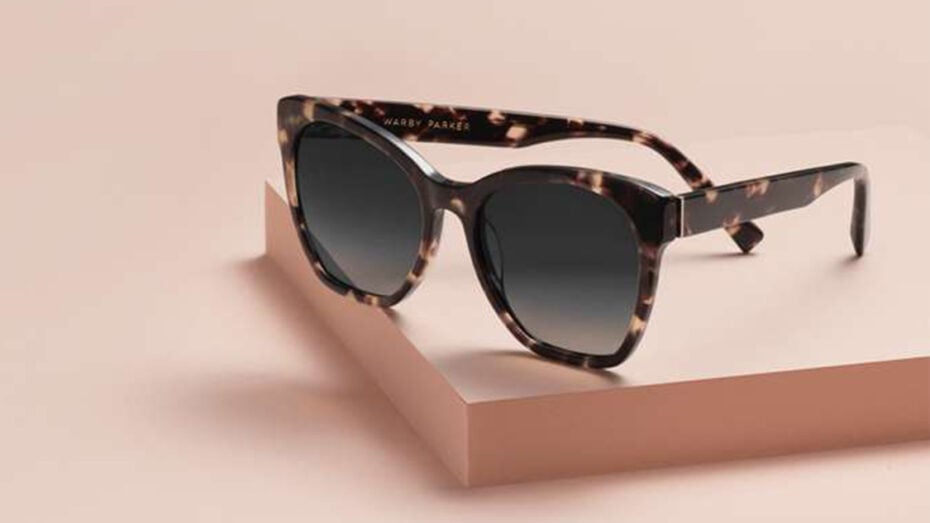
Warby Parker came to be because the owners found eyeglasses to be too expensive. Now they offer designer prescription eyeglasses and sunglasses at revolutionary prices while leading the way for socially conscious businesses. By circumventing traditional channels, designing glasses in-house, and engaging with customers directly, they’re able to provide higher-quality, better-looking prescription eyewear at a fraction of the going price. Warby Parker is one of the only carbon-neutral eyewear brands in the world. They give back by partnering with non-profits to ensure that for every pair of glasses sold, a pair is distributed to someone in need.
Brooklinen
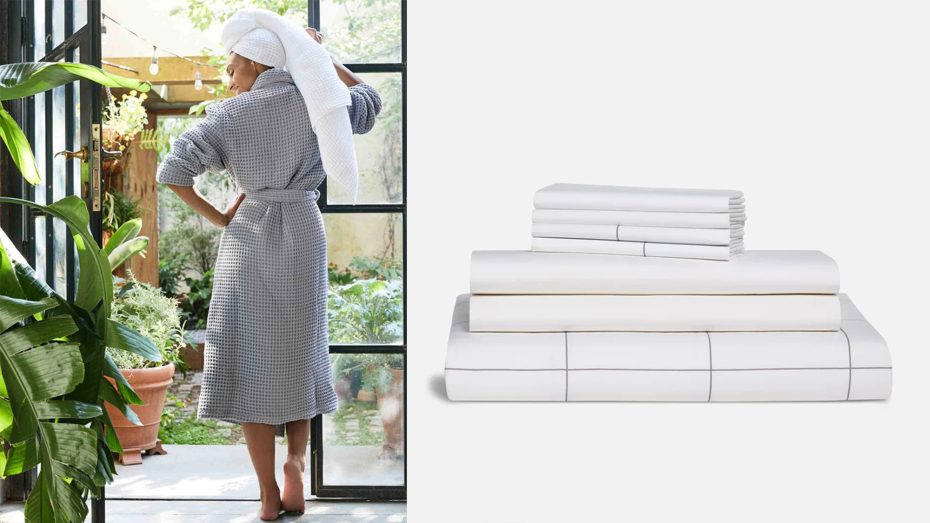
Based in Brooklyn, NY, Brooklinen delivers high-quality bedsheets and home essentials at a fair price. They manufacture responsibly with premium materials, but without the middlemen markup. Along with bedding and bath towels, they stock robes, loungewear, furniture, and home decor.
Parachute
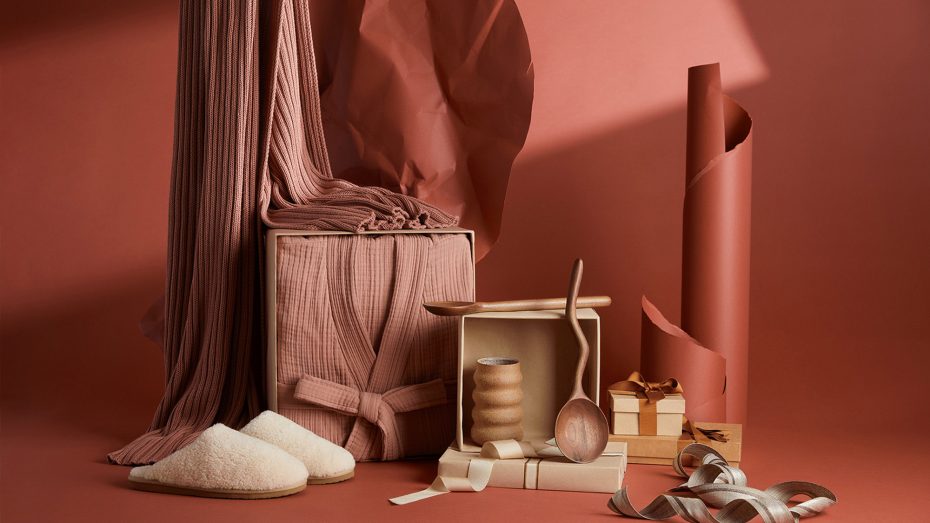
American D2C company Parachute wants to be your one-stop shop for sustainable home goods. They are a carbon-neutral company and use GOTS-certified, Oeko-TexⓇ-certified fabrics for their bedding, bath towels, robes, and loungewear.
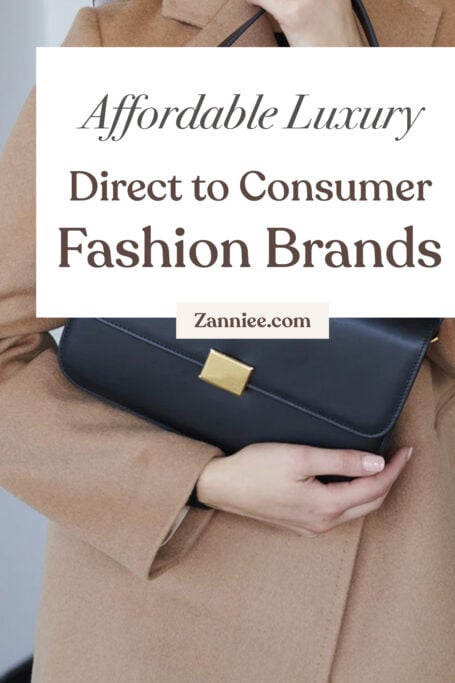
Florence
wrote:Dear Annie , thank you so much for putting this list together and also all the insights you share in your website . On my side, being a fashionista and working in the area of impact investment , I have come across a young creator brand : Gabriella Rossetti that I found very interesting and which may be of interest to your own work. Gabriella Rossetti is a size-inclusive, sustainable and attainable luxury brand.
I’m including ref to their website for your information : gabriellarossetti.com
I’m getting your newsletter to keep the connection .
Keep up the fantastic work.
Florence